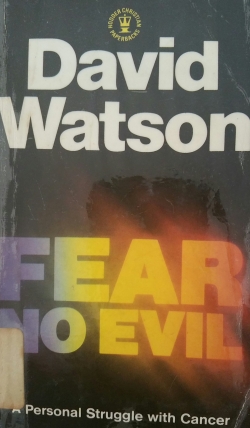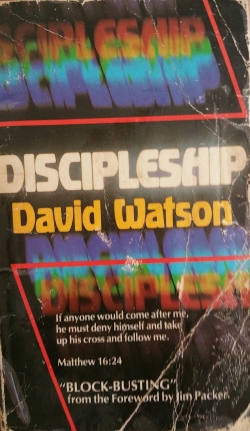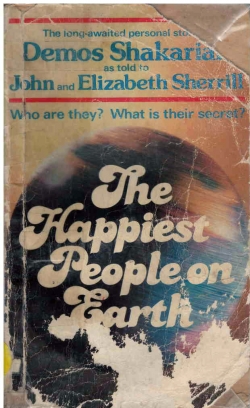Fear No Evil - A Personal Struggle With Cancer

Buy online ($)
Type
Book
Authors
ISBN 10
0340346418
ISBN 13
9780340346419
Category
Biography
[ Browse Items ]
Publication Year
1990
Publisher
Subject
Healing
Abstract
Annette Kingwill
Description
I have an unhealthy fear of death. Particularly, I have an unhealthy fear of dying young. That’s why I was so affected by Heath Ledger’s death. I think it’s related to what Alain De Botton calls status anxiety – for me, fear of dying without achieving. It’s an unchristian attitude and it needs changing. I need to trust God enough that I’m not scared to die, and to have my treasures firmly stored up in the kingdom, not the world. So Fear No Evil is an important book for me to have read, being a memoir of a Christian minister’s last year of life. I was reading the introduction to John Wimber’s Power Healing yesterday where John relates praying for David’s healing, and I thought how I would like to read David’s book. When I saw at the church bookstall today, it seemed that it was there for me to read. I was gripped by it, and read the whole thing this Sunday afternoon. It’s an unusual book, a poignant description of his life after being diagnosed with cancer at age forty-nine, mixed with passages of theological reflection on suffering, sin, health, death and finally a simple evangelistic plea to readers. The theology struck me as safely evangelical, but coming from the pen of a dying man it had more resonance than it would otherwise have had. Two things spoke to me: 1. He points out how much Jesus emphasises the judgement that will occur after we die. And he’s right, as much as I find it hard to take. 2. In seeking a theology of suffering, he examines, naturally enough, the book of Job, and concludes that the Bible doesn’t tell us why we suffer – we should just ask what God is saying to us. ‘If we have any conception of the greatness of God we should refrain from pressing the question Why however understandable that might be. On many thousands of issues we simply do not and cannot know… The questions are endless if we ask why? Instead we should ask the question What? “What are you saying to me, God? What are you doing in my life? What response do you want me to make?” With that question we can expect an answer.’ (p. 129) I would like God to tell us why. I think there’s some explanations of the why. But in an important sense he’s right. I’ve just got to have the grace to accept this hard idea. I was surprised by David’s vulnerability in talking about the fact that he didn’t seem to experience God in his life much more than I do. A couple of times he mentions that although he knows God is with him all the time, he only feels his presence sometimes. In chapter 11, “What Is Reality”, he speaks of fluctuating between faith and doubt about God. Again, not the answer I wanted to hear; I would actually like to think that there’s a level of experience of God that at the moment I’m missing out on, but that I’ll come to one day in my life. Another interesting part of the book is the gracious foreword by Jim Packer. I’m unfairly biased against Packer, coming as he does from a Reformed perspective, but his foreword reminds me to be more gracious like he is. He was friends with Watson despite Watson being Charismatic and in the foreword he gently mentions their different understandings of the situation – Watson that God wanted to heal him; Packer that God wanted to call Watson home. He also talks about dying well, and how it used to be an important part of each Christian’s life to die graciously, with acceptance and peace, but that now death has become an unmentionable.
Number of Copies
1
| Library | Accession No | Call No | Copy No | Edition | Location | Availability |
|---|---|---|---|---|---|---|
| Annette Kingwill | 84 |
WAT 109 |
1 | Yes |




